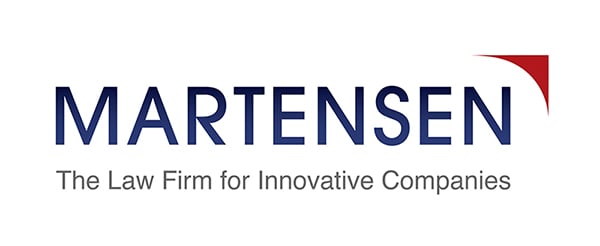SBIR vs. STTR: Understanding IP Rights in Both Programs
The Small Business Innovation Research (SBIR) and Small Business Technology Transfer (STTR) programs are both funded by U.S. government agencies and offer substantial financial support to small businesses engaged in research and development with strong commercialization potential. However, they differ significantly in how intellectual property (IP) rights are approached, especially regarding collaboration and commercialization.
Both SBIR and STTR programs are designed to promote technological innovation, but they have distinct requirements:
- SBIR: Small businesses conduct all or most of the research in-house. External partnerships are optional but limited in scope.
- STTR: Requires collaboration with a non-profit research institution, such as a university or federal laboratory, involving a defined split of R&D efforts between the business and the research institution.
Understanding these structural differences is essential, as they affect the handling of IP, especially regarding who retains ownership of inventions and how IP rights are shared.
Intellectual Property in SBIR and STTR Programs
In both SBIR and STTR programs, IP rights are defined by federal regulations and program guidelines. Here are the primary aspects to consider:
1. Ownership and Retention of Rights
Under both SBIR and STTR, small businesses retain ownership of the IP they develop, but the government receives certain use rights for the deliverables under the contract. The government prefers unlimited use rights when funding research, but under these programs, it accepts a subset of these rights. This "data rights" protection is granted through a standardized Data Rights Clause in government contracts, allowing small businesses to protect proprietary technical data and software for a period of time, typically twenty years.
2. Government’s Limited License Rights
When a small business develops IP under either SBIR or STTR funding, the government receives a limited license to use the IP for government purposes. This limited license does not grant the government commercial rights but allows agencies to use the technology internally or in future procurements, which can impact potential competitors for follow-on contracts.
3. Commercialization Rights
The ultimate goal of both programs is commercialization. For SBIR projects, commercialization is led solely by the small business, while for STTR projects, commercialization often involves the research institution as well. It’s critical for small businesses to have clear, contractually established rights to commercialize the IP, as these terms can shape long-term revenue opportunities.
Specific IP Considerations in STTR Programs
Since STTR mandates collaboration with a research institution, businesses should be aware of unique IP challenges and negotiate agreements proactively:
- Intellectual Property Agreements
Federal guidelines require STTR participants to negotiate Intellectual Property Agreements (IPAs) with their research institution partners. The IPA clarifies each party's rights to IP created under the program, addressing issues such as ownership, licensing, and commercialization. Effective negotiation of IPAs is crucial because research institutions often have different objectives regarding publication rights and IP monetization.
- Technology Transfer Offices (TTOs)
Universities and research institutions often have Technology Transfer Offices to manage IP created during collaborative projects. TTOs generally aim to protect and license IP generated through research, which can create additional considerations for small businesses seeking commercialization rights.
Strategic Steps for Protecting IP in SBIR and STTR Programs
To maximize IP protection and commercialization potential, small businesses should take a proactive approach:
Early IP Strategy Development
Engage with an IP attorney before submitting SBIR/STTR proposals to develop a strategy that addresses potential IP challenges. This can include securing patents, drafting nondisclosure agreements, and planning for IP ownership and licensing terms.
Negotiate Data Rights and IP Clauses in Contracts
Review and negotiate data rights and IP clauses in contracts to ensure that your company retains the maximum IP protection permitted under the program guidelines. SBIR and STTR contracts typically include clauses related to deferred delivery and technical data rights; understanding these terms can help you secure long-term control over your innovations.
Plan for Commercialization Early On
Since commercialization is a core objective of both programs, it is advantageous to outline a commercialization plan. This includes identifying potential markets, competitors, and licensing or manufacturing partners if needed. For STTR projects, ensure that commercialization terms are compatible with your research institution partner’s goals and expectations.
File for IP Protection Promptly
Filing for patents, trademarks, and other protections at the right time is essential. Delays can result in missed opportunities, especially in competitive fields. Additionally, for SBIR/STTR projects, timely filing is required to maintain exclusive IP ownership.
Common Challenges and Solutions in IP Management for SBIR/STTR Participants
- Conflicts with Research Institutions - For STTR projects, differing priorities between small businesses and research institutions can lead to IP conflicts. Solution: Work with an IP attorney to draft clear IP agreements and establish terms that safeguard your commercialization potential.
- Maintaining Data Rights During Commercialization - Data rights protection is a type of trade secret protection, requiring small businesses to protect the information from disclosure. This can directly conflict with patent rights, which are premised on the disclosure of information. Solution: Plan the scope of patent and data rights protection up front to avoid conflicts between government and commercial use business plans.
- Navigating Government License Terms - Government use of developed IP can complicate private sector commercialization. Solution: Address these license terms in contract negotiations to understand the scope of government usage rights.
Understanding IP rights in SBIR and STTR programs is essential for any small business seeking to innovate and commercialize technology with government support. By carefully managing IP ownership, data rights, and commercialization plans, small businesses can safeguard their innovations and maximize the long-term impact of their research. Consulting with an IP attorney can ensure that businesses are well-prepared to navigate these programs’ complexities, allowing them to focus on what they do best: innovating and bringing transformative solutions to market.
For more information or assistance with IP rights in SBIR/STTR programs, contact our team. We’re here to help small businesses protect their intellectual property and achieve lasting success.



